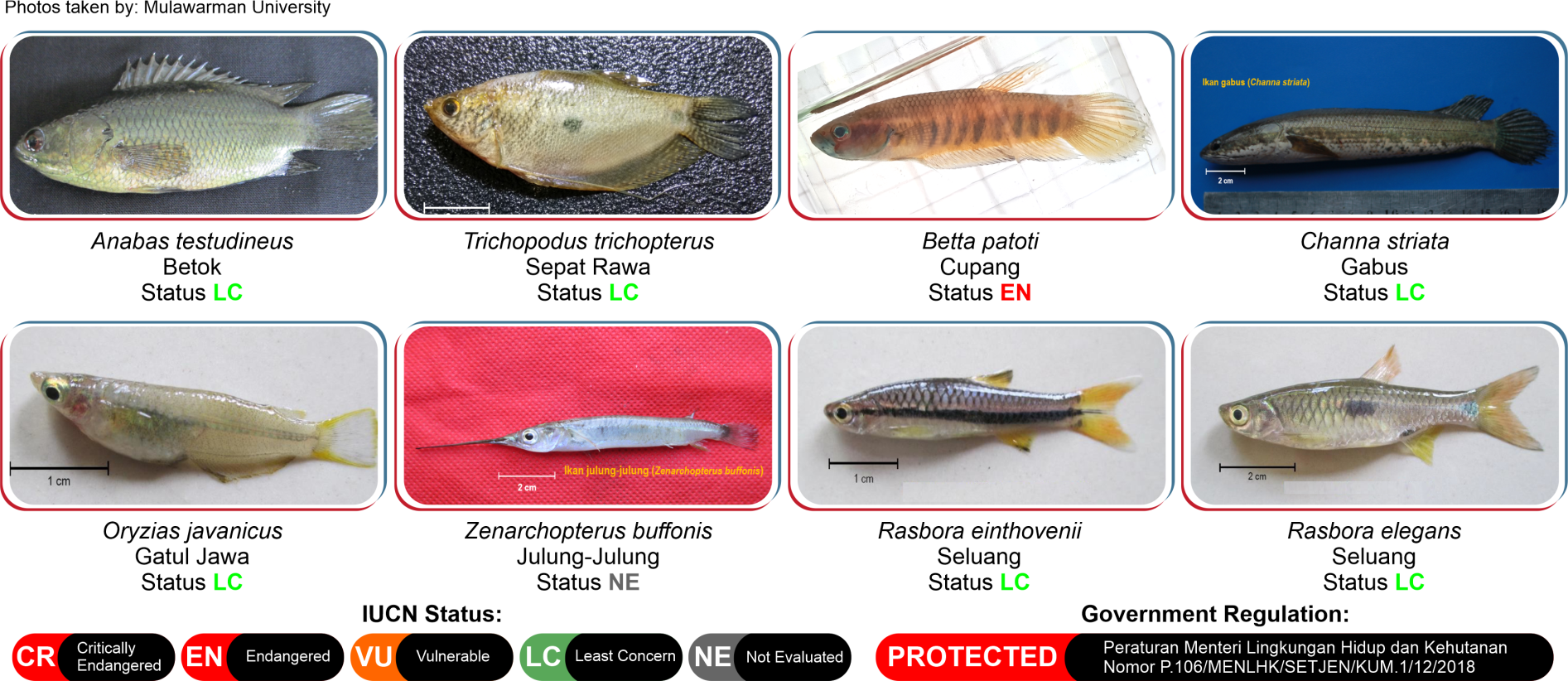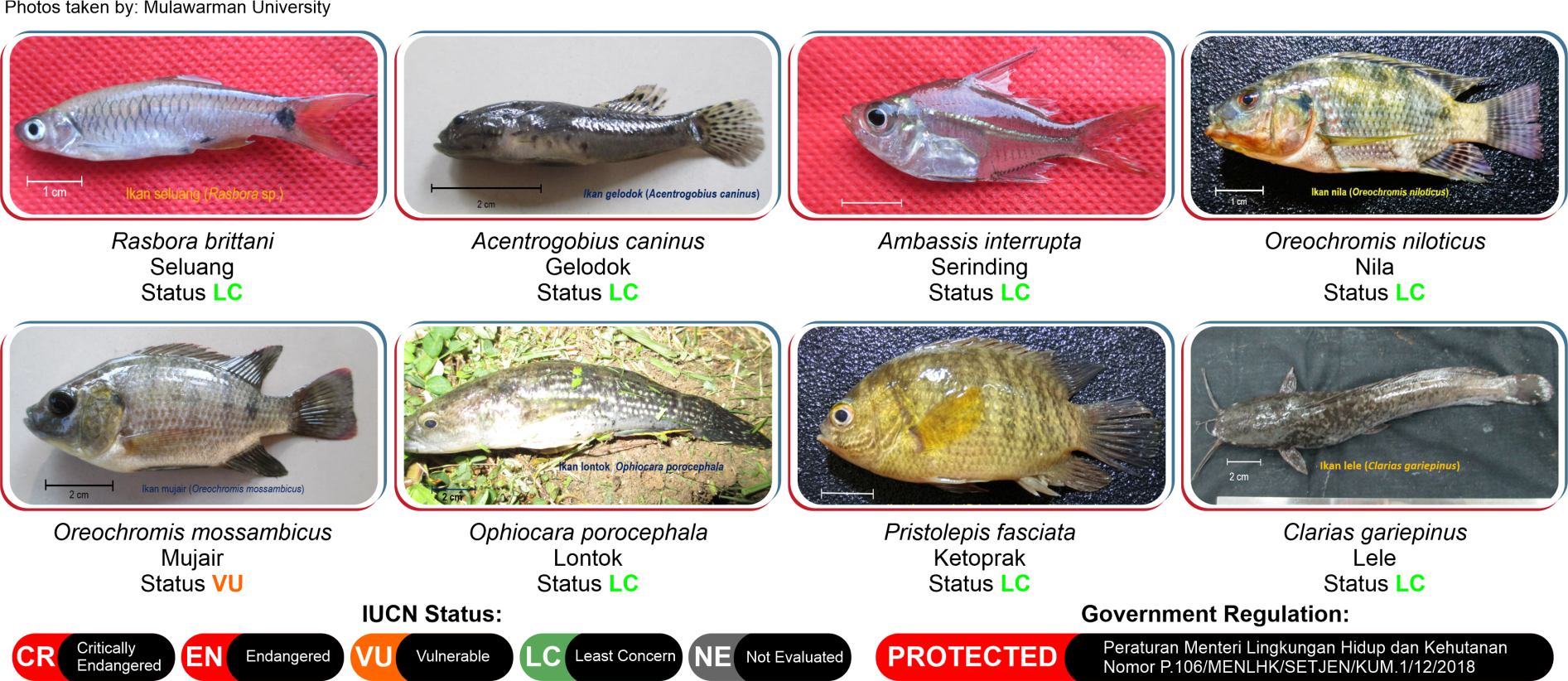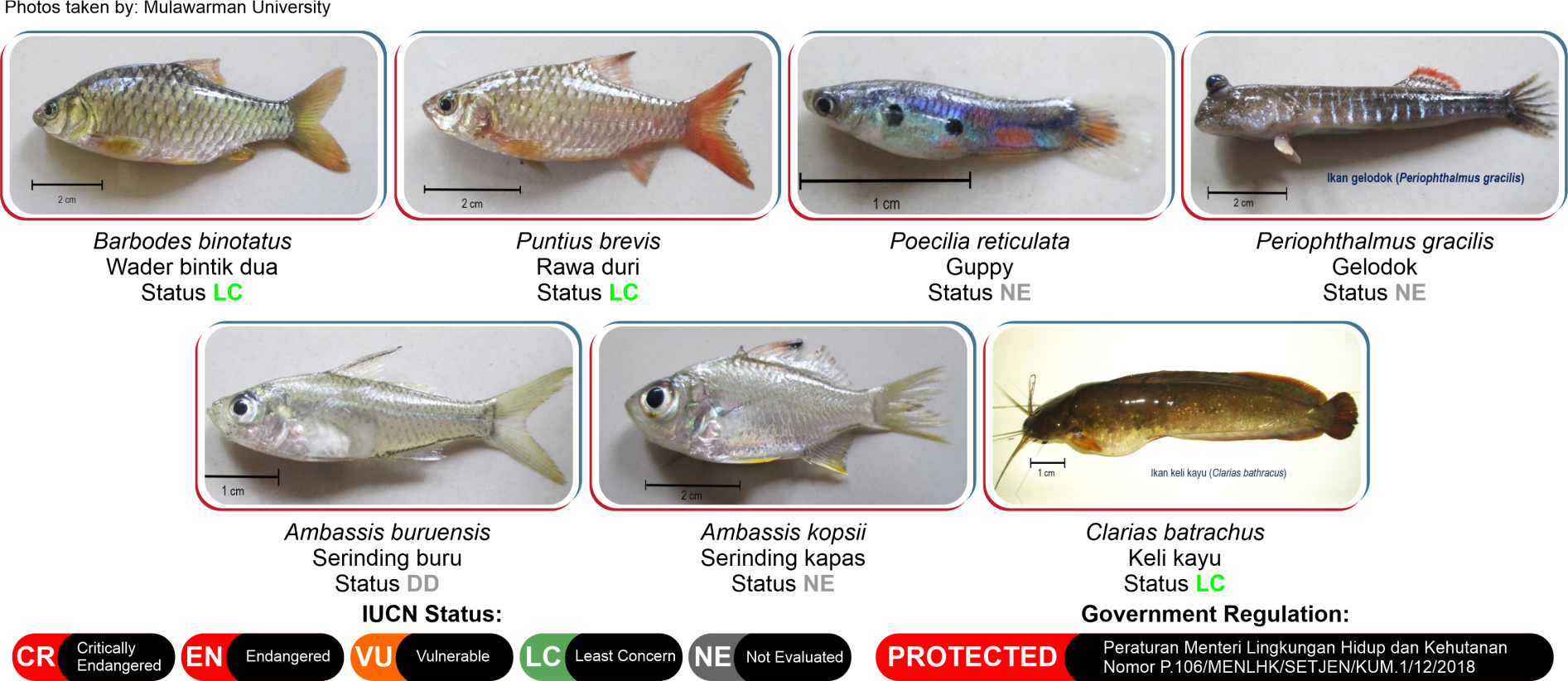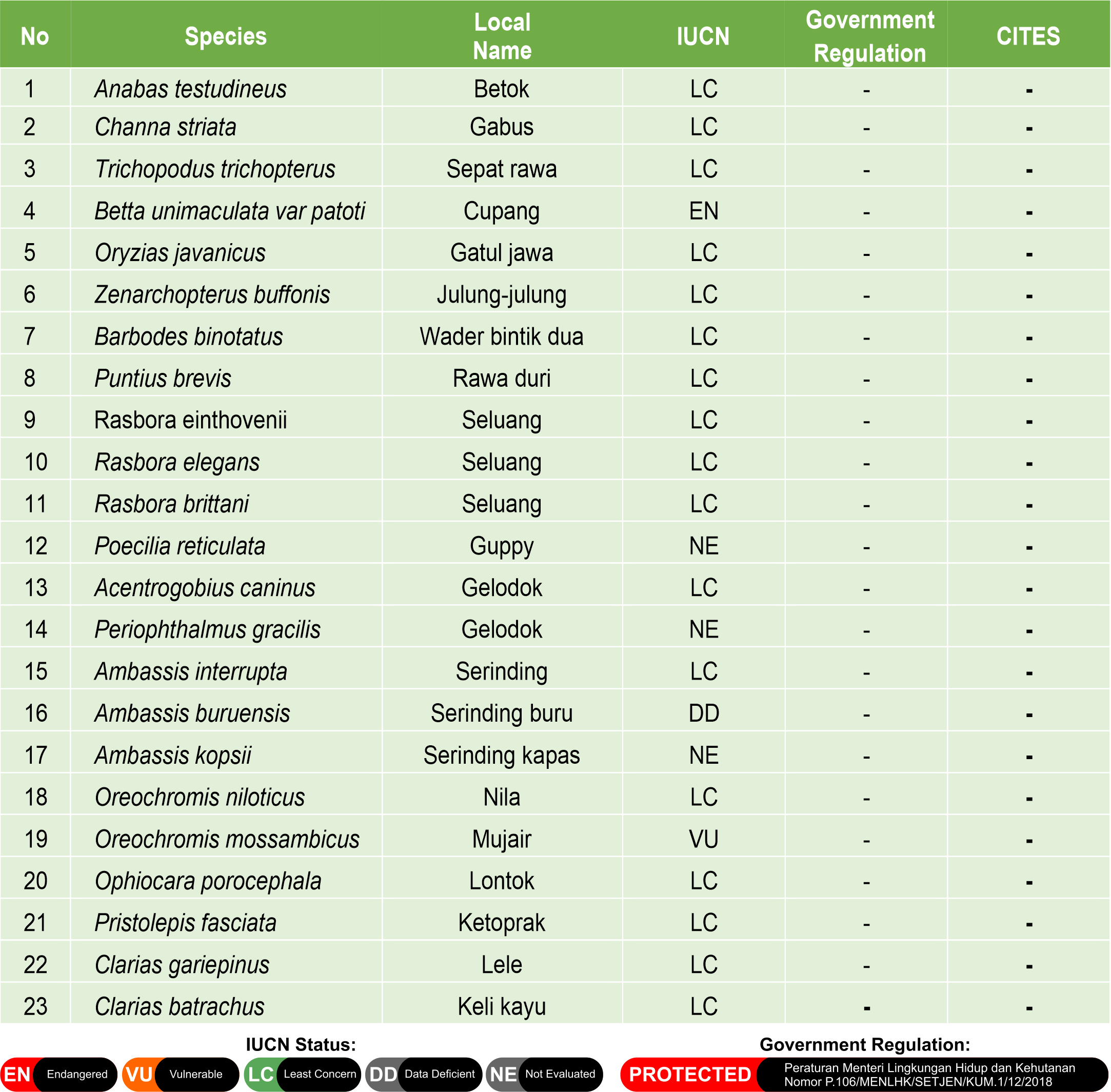Freshwater habitats may account for less than 0.01% of the earth’s total surface but they play important role in fundamental ecosystem function and services, besides sustaining an overwhelming diversity of species (Vorosmarty et al. 2010; Carpenter et al. 2011). The value of freshwater ecosystems by unit area being close to 20 times higher for wetlands and 10 times for lakes and rivers with respect to marine and terrestrial ecosystems (Costanza et al., 1997)
Freshwater fish are fishes that spend some or all of their lives in fresh water with salinity of less than 1.05%, such as rivers and lakes. Freshwater fish role in ecosystem are: regulating food web dynamics and nutrient balances, regulating carbon flux, regulating sediment processes, as active links between ecosystems, and as bioindicators. Due to their fecundity, small size, and economical maintenance and use, some species of freshwater fish has scientific value on surrogates and research models, and early warning signals of anthropogenic or chemical stress. Moreover, it is estimated that freshwater fishes make up more than 6% of the world’s annual animal protein supplies for humans (FAO, 2007)
41.24% of known species of fish are found in fresh water. According to Indonesian Biodiversity Strategy and Action Plan (IBSAP) 2015-2020, the total amount of freshwater fish in Indonesian was 1.248. There are 394 kind of freshwater fish has identified and 37.8% of them are endemic (Kottelat, 1993). Based on field observation on 2022, there are 1551 freshwater fish from 23 species, 14 families and 7 orders collected from Badak LNG Conservation Forest.






